Born in Saskatoon, Saskatchewan in 1964, Philip Ma attended Harvard before reading for an MPhil in Economics at Oxford. He returned to the US and earned a PhD in biology at MIT, going on to work at McKinsey for 20 years and then moving into biotech startups. Ma is now Chief Executive Officer, President and Founder of PrognomiQ, which develops and commercialises healthcare products for the early detection and treatment of cancer and other complex diseases. In 2021, he was the moving force behind the first ever Rhodes Global Policy Summit, bringing together experts from across the globe together to address the crucial topic of pandemic preparedness. This narrative is excerpted and edited from an interview with the Rhodes Trust on 15 March 2024.
Philip Ma
Saskatchewan & University 1986
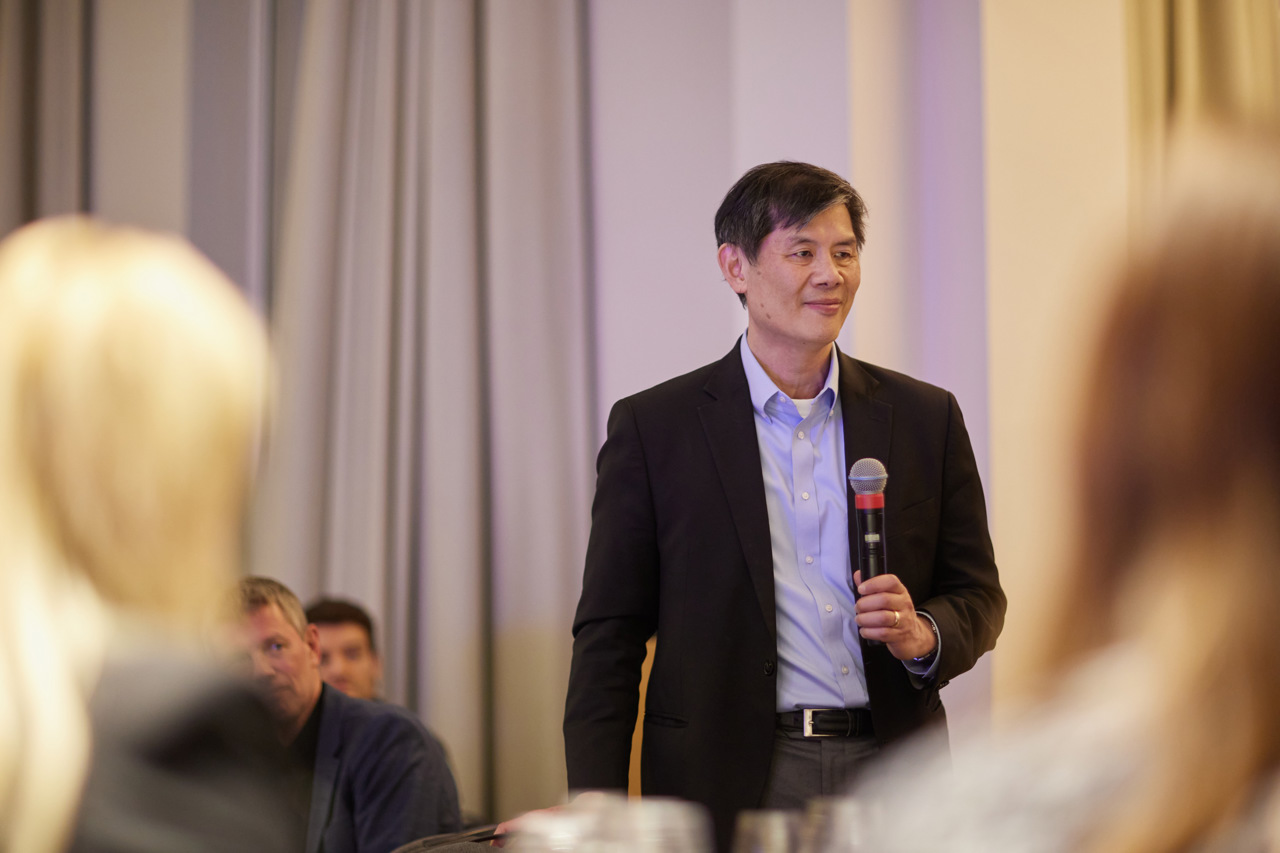
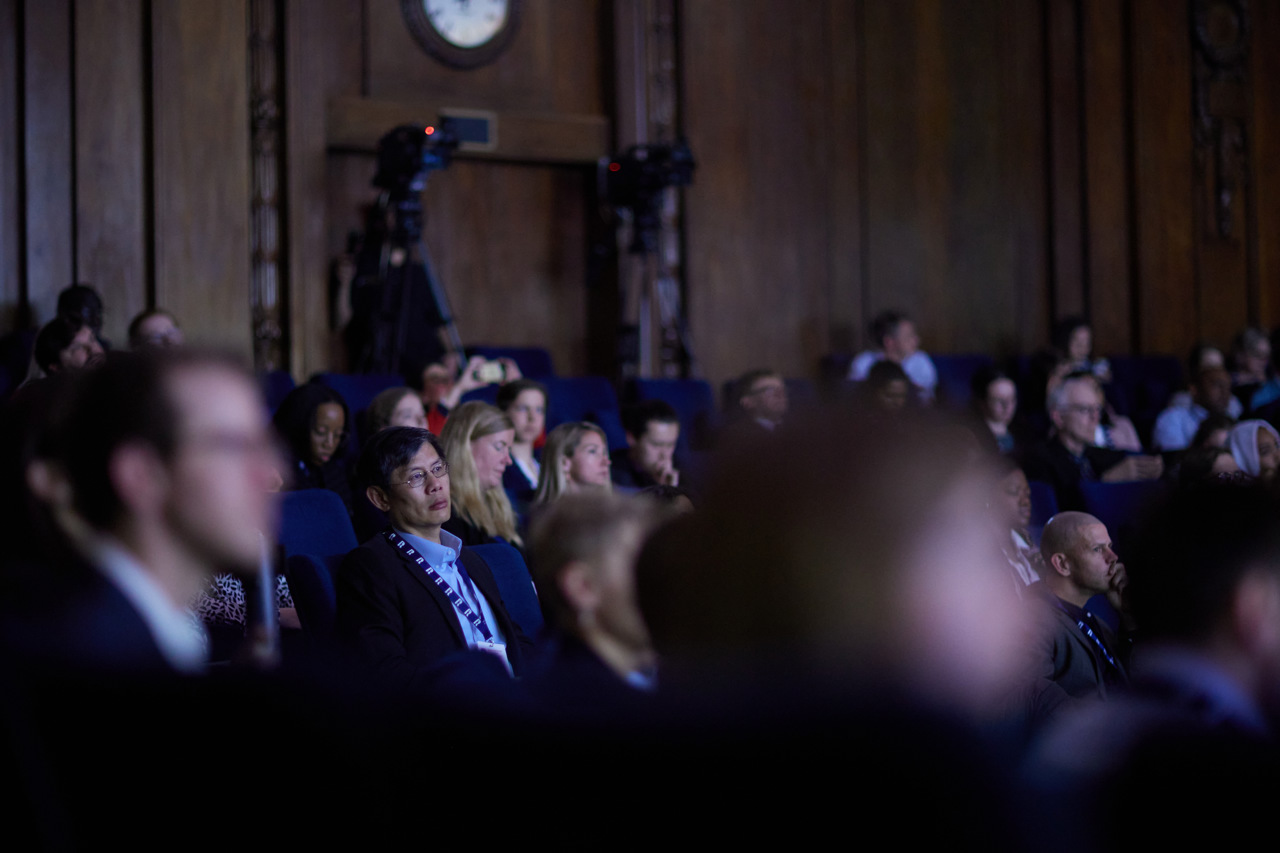
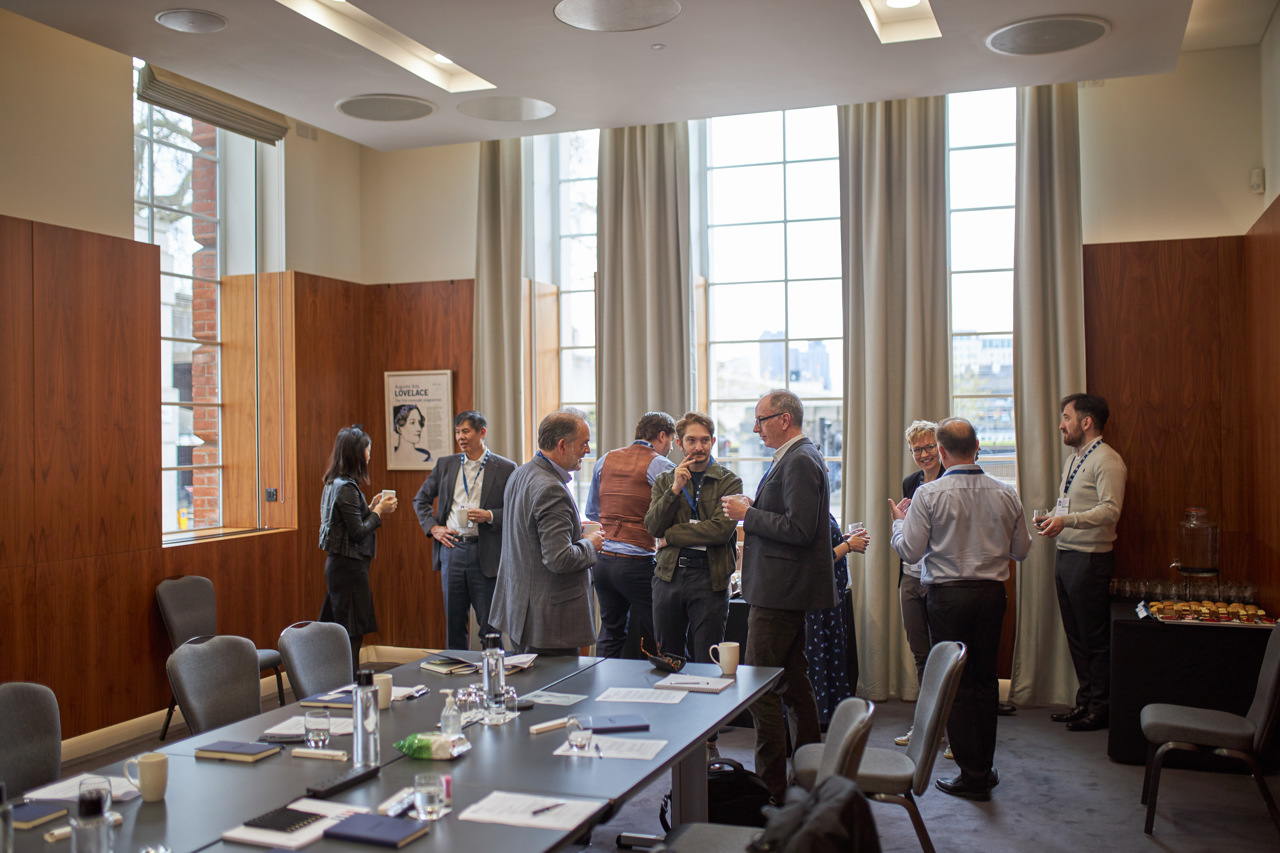
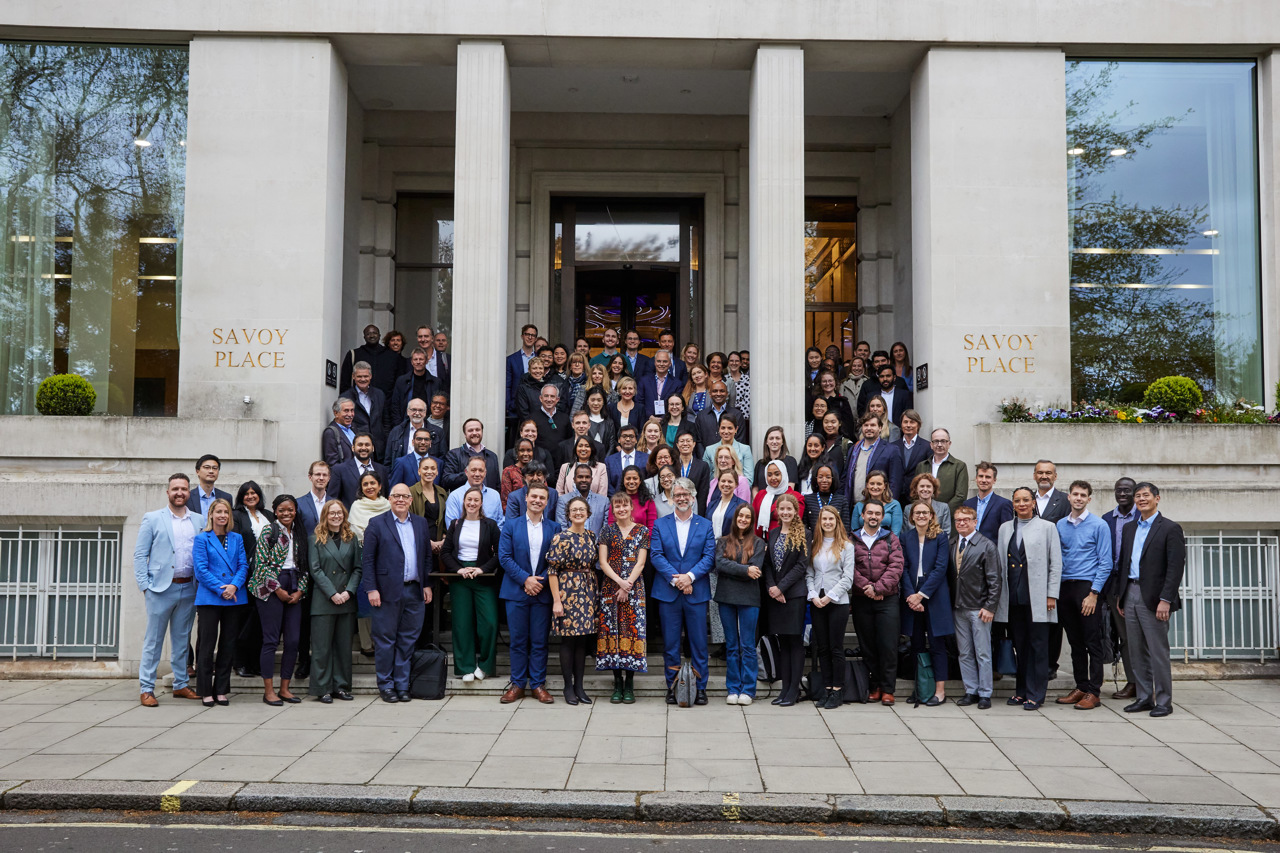
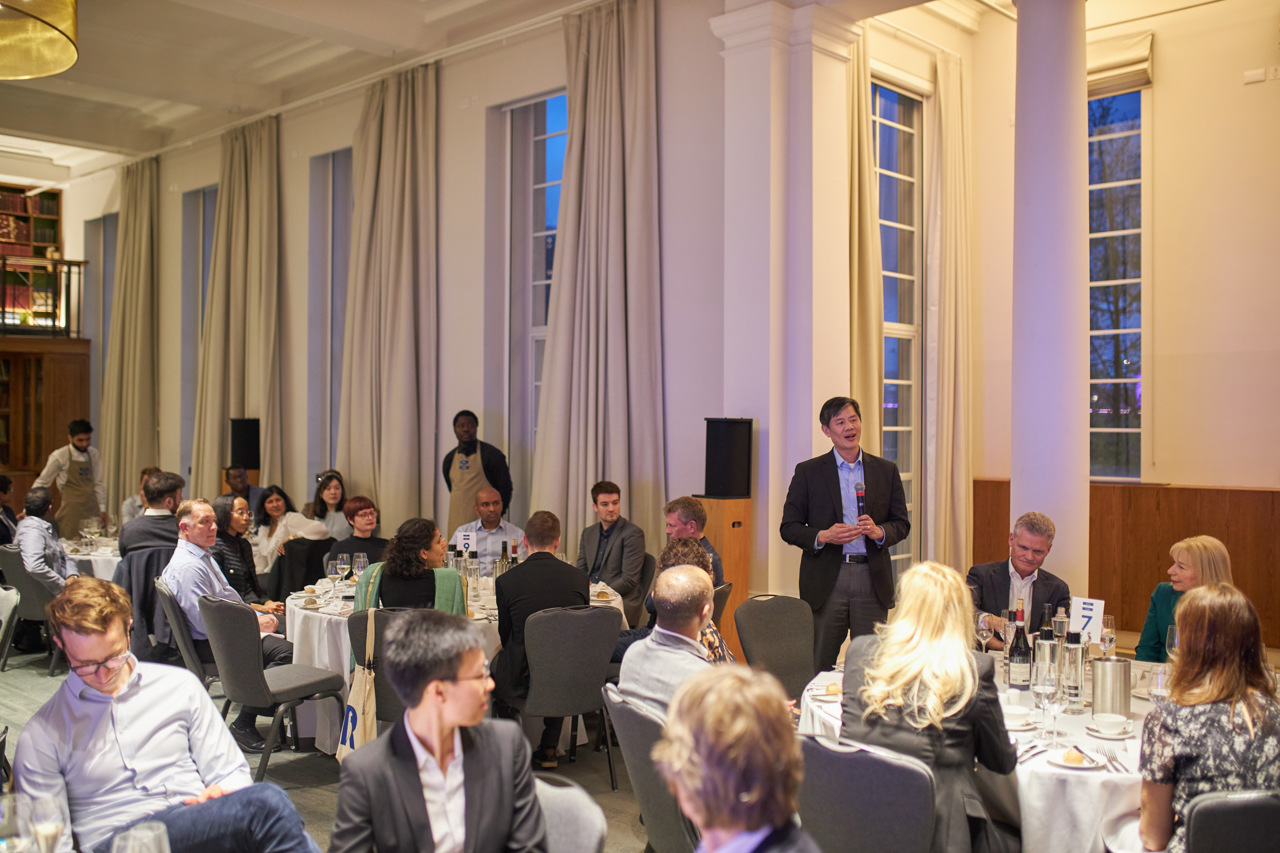
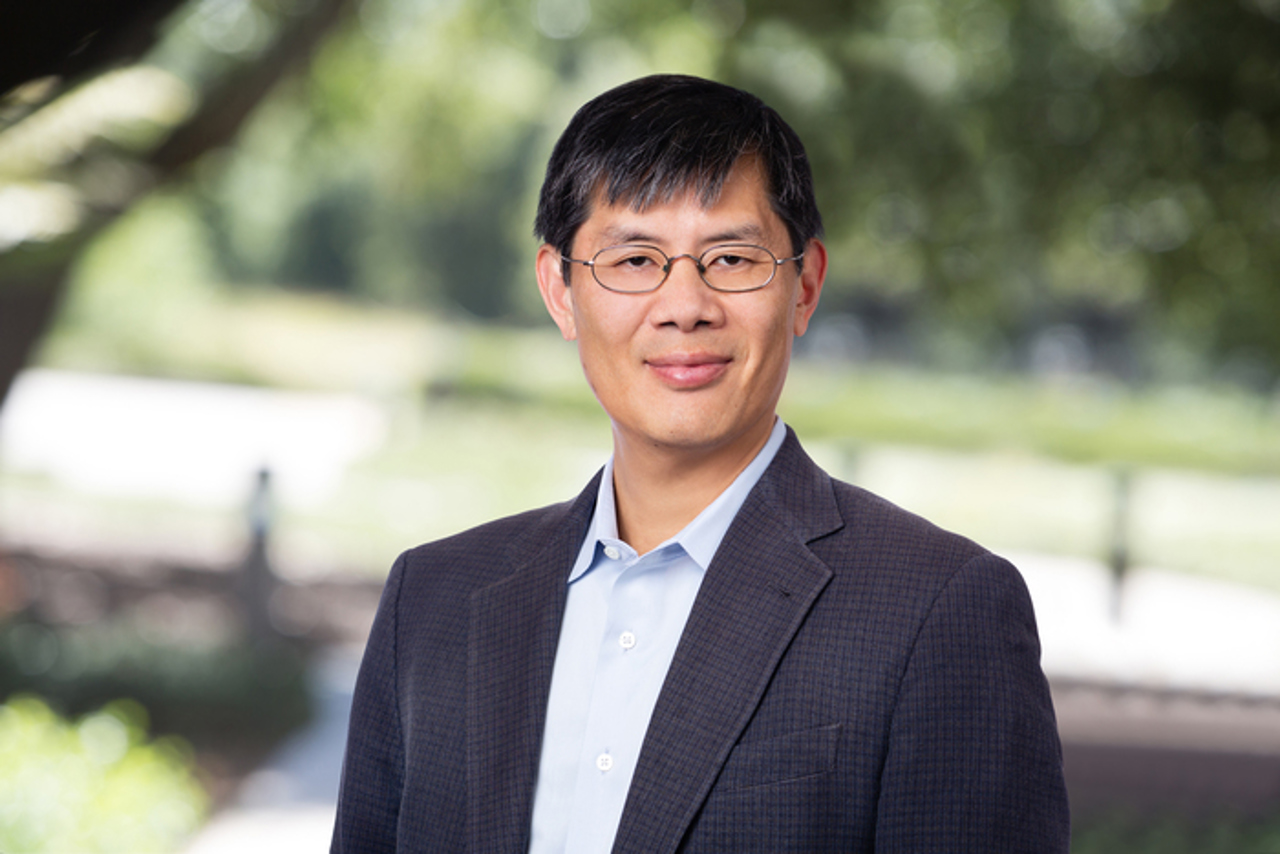
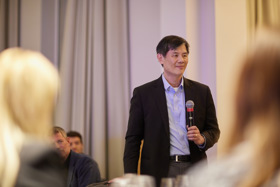
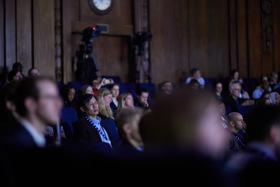
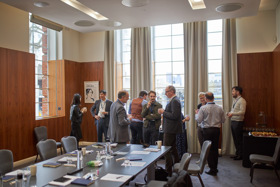
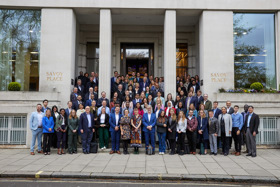
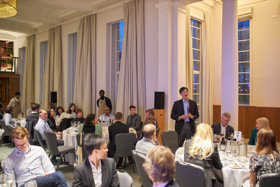
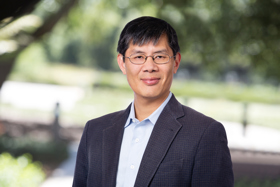
Early life
I grew up in a medical family. My father was a physician and my mother was a nurse, and they moved from China, originally coming to the United States and Canada for training. When they started their careers – this would have been the early 1960s – there was a shortage of medical people in Saskatchewan and so, they had a chance to stay. They braved coming to a new country in the middle of North America and starting their careers and their family. Eventually, a lot of my wider family was sponsored by my family to come over too.
There were not a lot of Asian people in Saskatchewan, so I ended up trying my best to integrate into the community. I grew up playing hockey and as I got into high school, I became focused on academics. I had a great chemistry teacher, Mr Dutka, who just had an infectious way of getting people interested in the subject, so I enjoyed that and I thought, given that my parents were in the medical field, maybe medicine or science was what I would go on to do.
Moving to Boston and going to Harvard was quite a culture shock, but I had the chance to meet people that I would have had no chance of meeting growing up in Saskatchewan. And this was the early 1980s when a lot of biotech and genetic engineering was just getting started, so it was an extremely interesting time to be there. I was fortunate that I had the opportunity to start doing some research at Harvard Medical School, first with Stanley Goldin and then with Henry Kronenberg. Some of the research eventually got published, which was exciting.
‘It was like going back in time’
Oxford surprised me in a couple of ways. The first was the communication system. Back then, if you wanted to get in touch with someone, you had to write them a note and put it in the pigeon post. I remember saying to the porter in Univ, ‘Don’t you just call them?’ and he said, ‘No, sir. There are only three phones in Univ.’ It was like going back in time and in some sense, I think Oxford really encouraged a lot more social interaction.
And then, I’d been expecting a very formal place, and it was like that in some ways, but it could also be very relaxed. For example, I started off doing Asian Studies, because I wanted to find out what was happening in biotech in Asia. Pretty soon, I realised that the course I’d chosen was a curriculum in classics in Asia, so I talked to the Warden about changing to economics, and he just said, ‘Sure, go and ask them,’ and I did. No paperwork, nothing. Because of my science background, I had the math to be able to move right into economics, and I started on the MPhil, which I really enjoyed. We had some incredible tutors, including Jim Mirrlees, who went on to win a Nobel Prize.
I travelled a lot while I was in Oxford too, going to Spain and to eastern Europe. I also got into athletics and weightlifting. The weightlifting was just about training, but a group of us realised that there was no Oxford University weightlifting team, so we started one. We competed against Cambridge, and we got our Half-Blue.
‘Horizon-opening’
For me, the Rhodes Scholarship was horizon-opening. It showed me what the world was like outside Canada and America, and it gave me the chance to meet so many different types of people. From a personal point of view, it opened the idea that you don’t need to be afraid: whether it’s academic research or weightlifting, you should just try something new. Go after opportunities, don’t hesitate, and try to bring others with you.
After I left Oxford, I went to MIT to do my PhD in biology. Towards the end of that, I went to a recruitment meeting with McKinsey and was intrigued by the chance to experience so many different things. I worked in the Chicago office, and I soon got involved with the life sciences, pharmaceutical and biotech group. I got to know a lot of pharmaceutical R&D leaders, and that’s how I earned the opportunity to join Biogen. Then, Bob Langer, who was at MIT, and Omid Farokhzad at the Brigham and Women’s, and I decided to start Seer to develop and commercialise the study of proteins at very large scale. PrognomiQ, which I lead now, was a spinout of Seer, because Seer’s customer base is researchers, and we had seen an opportunity to take the technology and apply it with other technologies and develop clinical products. We decided to focus on the early detection of cancer, because our technology could bring value that other technologies couldn’t, and there’s a huge unmet need there.
‘There’s such a wealth of talent within this community’
I think the biggest thing that I’ve learned in my life and career is to take opportunities when they present themselves. One of those opportunities came in 2021, when I was talking to the Warden of Rhodes House, Elizabeth Kiss (Virginia & Balliol 1983) about her vision for how Rhodes Scholars could stay connected after they leave Oxford and keep on working together to fight the world’s fights. Covid was still going on at that time, so we were all being forced to rethink things. It was too late to prevent that pandemic, but I thought, there’s such a wealth of talent within this community, maybe we could bring people together to talk about the wider issue of pandemic preparedness and what needs to happen to be ready for next time.
And through the Rhodes network, we were able to get people like Sir John Bell (Alberta & Magdalen 1975) involved, as well as others who ended up driving it. It was a powerful event, and it’s led on to lots of different collaborations and to public recommendations. Now, the Tony Blair Institute has picked up the work and is taking it forward. I think that shows the power of community, and especially the power of the community of Rhodes Scholars: that if you just bring the right people together and you’re smart about how you communicate, you can set a lot of stuff going.
On giving back
I grew up with the expectation that if you have the opportunity and the means to give back, you should do it. My parents always believed that, and I think my experience with the Rhodes Scholarship and at Oxford reinforced it too. It’s what the Rhodes Scholarship selects for, and so, as a Scholar, you spend your formative years with people who are always thinking, ‘What can I do to benefit the world and help people?’
